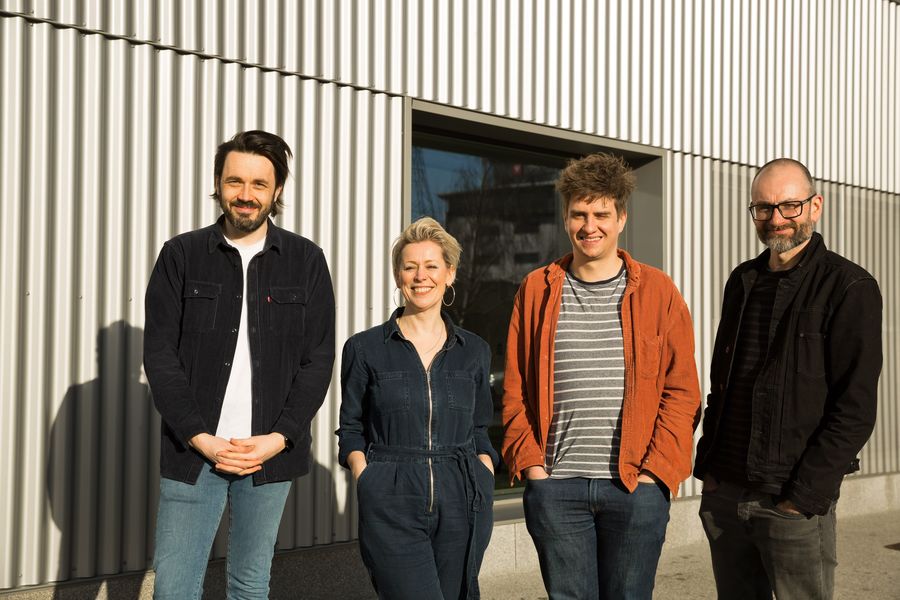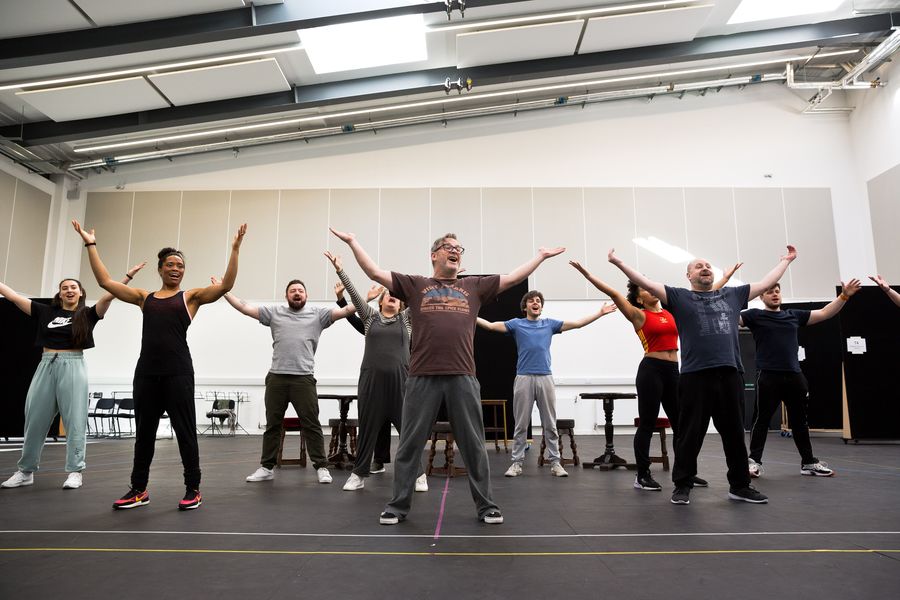Douglas Maxwell and Cora Bissett on adapting Orphans
Theatre-makers Cora Bissett and Douglas Maxwell have joined forces with songwriters Roddy Hart and Tommy Reilly, and the National Theatre of Scotland, to transform Peter Mullan's cult film into a stage musical
When it comes to creating musicals, Cora Bissett has never played it safe. In 2011, the Fife-born theatre director came up with the idea for Glasgow Girls – an all-singing, all-dancing show inspired by the seven schoolgirls who took on the government and led a campaign against dawn raids on asylum seekers. It burst onto stages in 2012, a defiant retort to the Home Office just as their Hostile Environment Policy was coming into effect. Later, in 2017, Bissett worked with author Emma Donoghue and singer-songwriter Kathryn Joseph on an adaptation of Donoghue's novel Room. A story about abduction and captivity might not seem like the most instinctive choice for a musical, but Bissett has a knack for turning unlikely or less obvious tales into smash hits.
"We think of musicals as being a bit fluffy and glitzy, but most of the musicals that have lasted for 50 or more years are very brutal," she explains. "You think of your Sweeney Todds and your Les Miz. It's all about dying and death and destruction and anarchy! The emotions are just so big and raw and primal. [That's what] everyone can relate to."
Even with her fearless track record, there was one thing about Bissett's latest idea for a project that made her feel slightly nervous. She wanted to make a musical version of Orphans, Peter Mullan's 1998 film about four Glaswegian siblings dealing with the death of their mother. Sitting down to pitch it to the man himself was a bit daunting. "I know Peter from way back so he wasn't a stranger to me, but it was a pretty bold offering," Bissett recalls. "I mean – you know that really big cult movie you did? Gonna turn it into a musical... showtime!" Mullan, however, was very open-minded. "I put my cards on the table and tried to explain why I thought it was a good idea," Bissett says.
"He created a bulletproof structure, with such a good spine for songs and dance sequences to come into it. I also think it's a brilliant, Scottish piece of work that is slightly undersung [in this country] – it has a cult following, but I think it should be one of those Scottish films we all know about. I think he could feel my passion for it and knew that I had a real vision for it. He also liked the boldness of going musical with it. He said, 'I love a musical, my maw loved 'em.' He got it."
Someone who needed a little more convincing was playwright Douglas Maxwell, who Bissett approached to adapt the script shortly after recruiting songwriters Roddy Hart and Tommy Reilly to write the music. When they met in a cafe, Maxwell wasn't sure but was swayed by Bissett's vision and what he calls her "Cora-ness". "I mean, Cora was a bit like one of those people out of Ocean's Eleven with this," he says proudly. "Putting a team together, and everyone she went to see was like 'ooh, I don't know'." Maxwell wasn't fully won over though until he met with Hart and Reilly at St Luke's in Glasgow. "They already had some songs written, and one of them was A Storm Is Coming, which is in the show," he says. "I heard it, and I thought man, this could totally work. I wasn't unconvinced for long. Now I'm at the point where, when John screams 'I'm gonna kill Duncan! There's a storm coming!' it would feel weird if he didn't start singing.”
Orphans follows brothers Michael, Thomas, John and their sister Sheila as they wander separately around Glasgow, each experiencing one long dark night of the soul before their mother's funeral. As a sardonic, occasionally bleak black comedy with a 90s kitchen sink drama vibe, it doesn't superficially scream 'musical.' But one of Bissett's greatest talents is her creative foresight – as with Room, she was able to envision exactly how the raw material in Orphans could translate fantastically into song. "It's a gift to make this a musical because you've got four characters who are all quite emotionally repressed," she says. "It's a loving family, but the men especially have that classic west coast inability to share that they love each other. That gives you fantastic licence in a musical. The question in a musical is always, why are they singing? Why would they sing? Because they can't say any of these things."
What's more, Orphans is full of self-contained, epic moments – the moment when John screams on the street, the moment when Thomas sobs during karaoke, the moment when the storm blows off the roof of the cathedral – that seem almost made for musical numbers. Bissett and Maxwell found the natural 'gaps' for songs, while maintaining the story's Glaswegian spirit and essential 'Orphans-ness.' The first "big massive choral song", developed from an early scene in the film when an exhilarated new father espouses positivity in a pub bathroom, is called Every Cunt Should Love Every Cunt. "If we get the authenticity right, and we're loyal to it – and there's not a bit of us going 'oh god, what will our London audience think, or an audience in New York' – then there will be some universality in it," reasons Maxwell. Bissett agrees. "You look at musicals like Billy Elliot and Blood Brothers, and the specificity of these stories and the fact that they are so rooted in the place where they're from gives them their power," she says. "I hope that Orphans might be the big Glasgow musical."

